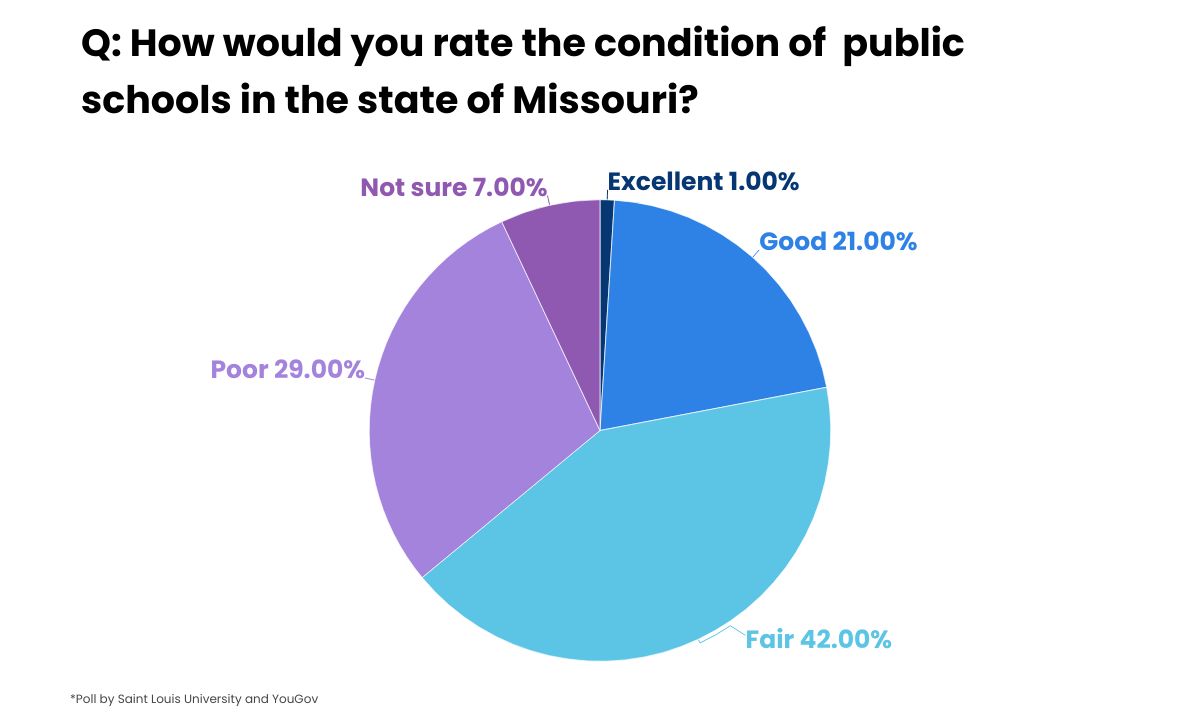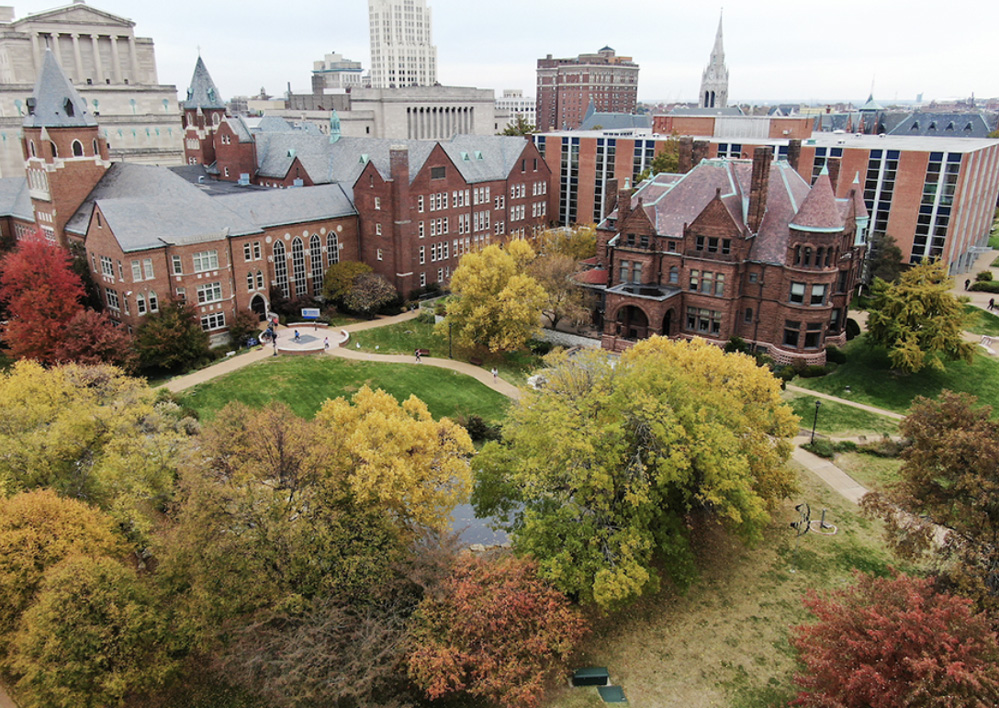More Missouri Voters Are Losing Faith in Public Schools, New Polling Shows
Nearly a third of voters rated Missouri public schools as poor, up from 17% in June 2020, reflecting a national post-pandemic shift, pollsters say.

Get stories like this delivered straight to your inbox. Sign up for The 74 Newsletter
A recent poll reveals that an increasing number of Missouri voters consider their public schools to be of poor quality and highlights issues within the state’s struggling teacher pipeline.
The annual poll, released in August by Saint Louis University and research firm YouGov, surveyed 900 Missouri voters about politics, schools and LGBTQ topics in education. Nearly a third of voters (29%) rated Missouri public schools as poor, markedly more than the 17% who did in June 2020.
Gary Ritter, dean of the university’s school of education, said the fact that Missouri voters are losing confidence in their schools isn’t a surprise — it’s also a finding that is reflected in national studies.
Ritter said like others across the U.S., Missouri voters saw their faith in education erode through the pandemic, as districts have struggled with remote learning and academic loss.
“We’ve had a peek into what goes on in crisis-mode school, when you’re trying to figure out how to deal with a pandemic,” Ritter told The 74. “So folks are slightly less confident in school performance and school quality, just as I think any of us would have guessed. Missouri looks like the country in that way.”
The poll, which began in 2020, is conducted online about every six months with U.S. residents who have registered to participate in YouGov web surveys. It has a plus or minus margin of error of 4 percentage points. Most questions are similar each time and are about issues that are top priorities to Missourians.

The latest poll included more questions about teachers in general, said Ashley Burle, chief of operations and research fellow at Saint Louis University.
“One thing that I tried to connect is some of the issues related to teachers and more broadly connecting it to the teacher pipeline issues,” Burle said. “We know that there are issues that need to be addressed. There are things that need to be done to help the teacher pipeline get back on track, so I’d love to see us kind of make that more clear connection between a lot of those points in the future polls.”
Just over half (51%) of voters said they have “a great deal” or “a good amount” of trust and confidence in Missouri’s public school teachers. Less than one-third (28%) of voters said they had some trust while the remaining voters either said no or weren’t sure.
About 54% of voters viewed the K-12 teacher shortage as a problem in their community and a strong percentage of respondents (81%) think teacher salaries should increase.
But only 35% said they would advise a young adult to become a teacher, while 45% said they wouldn’t and 20% weren’t sure.
The poll also conveys a slight openness to charter schools with 55% of respondents saying they believe charter schools should operate in all areas of the state and 52% saying they want them to operate in their own district.
Ritter said currently most charter schools operate in the Kansas City or St. Louis metropolitan areas because of a state law that controls where the schools, which are publicly funded but independently run, can be located.
Burle said she was surprised about the results regarding more controversial topics in the classroom, such as gender identity and sexual orientation.
More than half (56%) of voters said they approve of the discussion of sexual orientation in high school compared to 18% in elementary school. These results were similar for the discussion of gender identity. Roughly half of voters also opposed the banning of books that feature LGBTQ youth.
Missouri grappled with its own version of Florida’s “Don’t Say Gay” bill during this year’s legislative session. The bill would have banned the discussion of gender identity or sexual orientation in schools, but it failed to pass.
“It was interesting to see the gradation in responses. We kind of think this is an all-or- nothing issue — either we teach these things in all the schools or we don’t teach them in any of the schools,” Burle said. “In fact, voters think, ‘Hey, actually, for older kids, in high schools in particular, we actually think it’s OK.’ I think it just shows you there’s a little bit of an area of gray.”
Ritter said he hopes policymakers will use the results to inform themselves about what Missouri voters find important. While Saint Louis University researchers are still analyzing the latest poll results, people can view them and previous polls on the university website.
“We’re going to be digging in to say, what question should we double down on in the next poll? What do we want to learn?” Ritter said. “So we’ll be trying to figure out again how we can find interesting trends.”
Get stories like these delivered straight to your inbox. Sign up for The 74 Newsletter

;)
